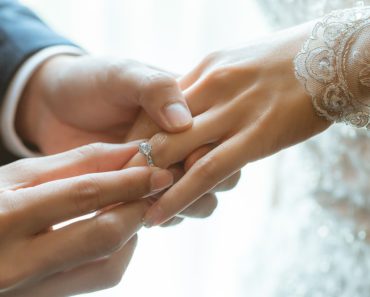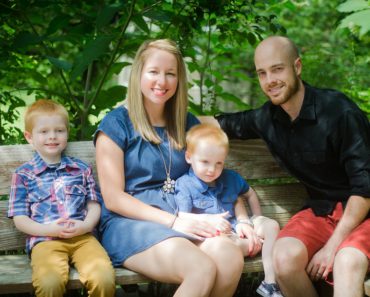Contents
- 1 Overcoming the Fear of Marriage: A Mental Health Perspective
- 2 Understanding the Fear of Marriage: Unveiling Gamophobia
- 3 Causes and Triggers of the Fear of Marriage
- 3.1 How can I overcome my fear of marriage and build a healthy and fulfilling relationship?
- 3.2 What strategies can I implement to address the underlying causes of my fear of marriage and develop a positive mindset?
- 3.3 Are there any therapeutic approaches or self-help resources specifically designed to help individuals cope with their fear of marriage and improve their mental well-being?
- 3.4 Related Posts

Do you find yourself grappling with the fear of marriage? In this article, we delve into how couples in blended families can face their anxieties head-on, build effective coping strategies, and nurture strong, satisfying relationships. Uncover helpful insights and actionable advice to guide you toward a harmonious, loving, and enduring partnership.
Overcoming the Fear of Marriage: A Mental Health Perspective
Marriage can be a beautiful and fulfilling union, but for some individuals, the mere thought of it can evoke intense fear and anxiety. This fear of marriage, also known as gamophobia, can stem from various underlying mental health issues and past experiences.
One possible cause of gamophobia is a fear of commitment. The idea of being bound to one person for a lifetime can feel overwhelming and restrict one’s sense of freedom and independence. This fear may arise from previous relationship traumas or a fear of losing oneself in the process of merging lives with another.
Another important aspect to consider is the fear of intimacy. Deep emotional connections can be incredibly vulnerable, and individuals with this fear may worry about the potential for emotional pain and rejection that often come with being close to someone. They may fear losing their autonomy and personal space within a marriage.
Past experiences, such as witnessing or experiencing divorce or dysfunctional relationships, can also contribute to the fear of marriage. These experiences may have created negative associations with the institution of marriage, leading individuals to develop a fear of entering into similar unhealthy relationships.
Mental health conditions such as anxiety disorders and attachment issues can exacerbate gamophobia. Individuals struggling with these conditions may have difficulty trusting others or may fear being abandoned or rejected. These underlying issues can manifest as a fear of marriage, as the commitment and vulnerability involved can heighten their anxieties.
However, there are ways to overcome the fear of marriage and work towards building a healthy and fulfilling relationship. Seeking therapy or counseling can provide a safe space to explore and address the root causes of the fear. Therapists can help individuals develop coping strategies, challenge negative beliefs, and build self-confidence.
Self-reflection and personal growth are also important in overcoming gamophobia. Taking the time to identify and confront any underlying fears or traumas can lead to healing and the ability to form healthier relationships. Engaging in activities that promote self-care and self-love can also help individuals build a strong foundation for a future partnership.
Understanding the Fear of Marriage: Unveiling Gamophobia

As we have said previously, marriage is a social institution that has brought people together for centuries, often perceived as a symbol of love, commitment and shared future. However, for some, the very thought of getting married can trigger intense symptoms.
Delving into the Depths of Gamophobia
Gamophobia is a specific phobia characterized by an extreme and irrational fear of marriage or committed relationships. While the reasons behind gamophobia vary, it often stems from a complex interplay of factors, including:
- Negative Experiences: Exposure to troubled marriages, witnessing a difficult divorce, or experiencing personal relationship trauma can instill a deep-seated fear of commitment and its potential consequences.
- Fear of Loss of Independence: The prospect of marriage can evoke anxiety related to losing one’s autonomy, freedom, or personal identity.
- Low Self-Esteem: Individuals with low self-esteem may fear that they are unworthy of love or that they will be unable to fulfill the expectations of a marital partnership.
- Commitment Issues: A general discomfort with commitment and intimacy can manifest in a specific fear of marriage, as it represents the ultimate form of commitment.
Recognizing the Signs of Gamophobia
The fear associated with gamophobia can manifest in various ways, including:
- Intense Anxiety: When faced with the prospect of marriage or even the thought of it, individuals with gamophobia may experience overwhelming anxiety, panic attacks, and physical symptoms such as sweating, trembling, and nausea.
- Avoidance Behaviors: To escape the fear, individuals may engage in avoidance behaviors, such as sabotaging relationships, self-isolating, or constantly finding reasons to delay or avoid commitment.
- Negative Thoughts: Irrational and intrusive thoughts about the negative aspects of marriage can dominate their minds, perpetuating the fear and anxiety.
Causes and Triggers of the Fear of Marriage
Let’s delve into the factors that trigger and contribute to this condition.
Triggers:
- Engagement Talks: The formal conversation about marriage can be a major trigger, bringing the reality of commitment to the forefront.
- Wedding Planning: The pressure and expectations surrounding wedding planning can exacerbate anxieties associated with the event itself and the future it represents.
- Family/Social Events: Witnessing challenging relationships or attending weddings of others can act as triggers, reminding individuals of potential pitfalls.
Causes:
- Negative Experiences: Exposure to dysfunctional marriages in childhood, witnessing a bitter divorce, or experiencing personal relationship trauma can instill a deep-seated fear of repeating those experiences.
- Loss of Independence: The fear of losing autonomy, freedom, or individuality within a marriage can be a significant trigger for those who cherish their independence.
- Commitment Phobia: A general discomfort with commitment in any aspect of life can manifest specifically in marriage due to its permanent nature.
- Low Self-Esteem: Individuals with low self-esteem may fear rejection, believe they are unworthy of love, or doubt their ability to maintain a successful marriage.
- Perfectionism: Unrealistic expectations of themselves or their partner can lead to anxieties about failing to live up to the ideal of marriage.
- Cultural/Religious Pressures: Societal or religious pressures to marry can exacerbate fears, especially if the individual doesn’t feel ready or has different views on commitment.
Understanding these triggers and causes is crucial for both individuals experiencing gamophobia and those who want to support them. By identifying the specific anxieties, open communication and seeking professional help can pave the way towards healthy, committed relationships.
Remember:
- Gamophobia is treatable: With dedication and support, you can overcome these fears.
- Marriage is a choice, not an obligation: Prioritize finding a partner who respects your needs and desires.
- Focus on building a strong foundation: Develop a healthy, supportive relationship built on trust and communication before taking the next step.
Overcoming gamophobia is a journey of self-discovery and growth. By taking initiative, seeking support, and challenging your fears, you can open yourself to the possibility of a fulfilling and lasting commitment.
How can I overcome my fear of marriage and build a healthy and fulfilling relationship?
1. Understand the fear: Take some time to reflect on why you have a fear of marriage. It could stem from past experiences, cultural or social pressure, or personal insecurities. Acknowledging and understanding the source of your fear can help you address it effectively.
2. Seek therapy: Consider seeking professional help from a therapist or counselor who specializes in relationship issues. They can provide guidance and support in overcoming your fear and developing the skills needed for a healthy and fulfilling relationship.
3. Challenge negative beliefs: Identify any negative beliefs or thoughts you have about marriage and challenge them. Instead of focusing on the potential negative outcomes, try to shift your mindset towards a more positive and realistic view of relationships.
4. Work on self-confidence and self-love: Building a healthy relationship starts with having a strong sense of self. Work on improving your self-esteem by practicing self-care, setting boundaries, and engaging in activities that bring you joy and fulfillment.
5. Communicate openly and honestly: Establishing clear and open communication is crucial in any relationship. Talk to your partner about your fears and concerns. They can provide reassurance and support, and together you can work towards building trust and creating a safe environment for both of you.
6. Take it slow: Don’t rush into marriage or commitment if you’re not ready. It’s important to take the time to build a strong foundation in your relationship before making such a significant commitment. Allow yourself to gradually become comfortable with the idea of marriage and let the relationship naturally progress.
7. Focus on personal growth: Invest time and effort in your personal growth and development. This can include attending workshops or seeking educational resources on maintaining healthy relationships. The more confident and self-aware you become, the better equipped you’ll be to navigate the challenges and joys of marriage.
Remember, overcoming a fear of marriage takes time and effort. Be patient with yourself and your partner, and celebrate small victories along the way. If necessary, seek ongoing support to ensure you’re actively working towards a healthy and fulfilling relationship.
What strategies can I implement to address the underlying causes of my fear of marriage and develop a positive mindset?
To address the underlying causes of your fear of marriage and develop a positive mindset, here are a few strategies you can implement:
1. Self-reflection: Take the time to explore and understand the root cause of your fear. Reflect on any past experiences, beliefs, or insecurities that might be contributing to your apprehension. Self-reflection will help you gain insight into your fears and allow you to work through them.
2. Therapy or counseling: Consider seeking professional help from a therapist or counselor who specializes in relationship issues. They can provide guidance and support as you navigate your fear of marriage. Therapy can help you uncover deeper emotional patterns and develop effective coping mechanisms.
3. Educate yourself: Knowledge is power: Equip yourself with information about healthy relationships, effective communication, and conflict resolution skills. Understanding the dynamics of a successful marriage can alleviate some of your fears and give you a better foundation for building a strong partnership.
4. Challenge limiting beliefs: Identify any negative or limiting beliefs you hold about marriage, such as fear of commitment or fear of losing independence. Challenge these beliefs by questioning their validity and replacing them with more positive and realistic thoughts. Affirmations and visualization techniques can also be helpful in reshaping your mindset.
5. Gradual exposure: Gradually expose yourself to situations related to marriage, such as attending weddings or engaging in conversations about marriage. Start with small steps and gradually increase your level of exposure to desensitize yourself and build confidence.
6. Build a support network: Surround yourself with supportive and understanding individuals who can offer guidance and encouragement throughout your journey. Share your fears and concerns with trusted friends or family members who can provide a listening ear and help you stay positive.
7. Practice self-care: Prioritize self-care activities that promote relaxation, reduce stress, and enhance your overall well-being. This can include exercise, meditation, journaling, engaging in hobbies, or seeking activities that bring you joy and fulfillment. Taking care of your mental and emotional health will contribute to a more positive mindset.
Remember, addressing your fear of marriage is a personal journey, and progress may take time. Be patient with yourself and celebrate small victories along the way. Stay committed to your growth and open to the possibility of a fulfilling, healthy marriage.
Are there any therapeutic approaches or self-help resources specifically designed to help individuals cope with their fear of marriage and improve their mental well-being?
Yes, there are therapeutic approaches and self-help resources available to help individuals cope with their fear of marriage and improve their mental well-being. It’s important to remember that seeking professional help from a therapist or counselor can provide personalized guidance and support tailored to individual needs. However, here are a few general approaches and resources that may be useful:
1. Cognitive Behavioral Therapy (CBT): This therapy focuses on identifying and challenging negative thought patterns and beliefs associated with the fear of marriage. CBT helps individuals develop healthier and more rational ways of thinking about marriage, leading to improved emotional well-being.
2. Exposure Therapy: This type of therapy gradually exposes individuals to situations or discussions related to marriage, allowing them to confront their fears in a controlled and safe environment. Through repeated exposure, anxiety and fear can decrease over time.
3. Self-Help Books: There are numerous self-help books available that address the fear of marriage and offer strategies for overcoming it. Examples include “The Fear of Intimacy” by Robert W. Firestone and “Overcoming Fear of Commitment” by Emily Durango.
4. Online Support Communities: Joining online forums and support communities can provide individuals with a platform to share experiences, gain insights, and receive support from others who have similar fears. Websites like Psych Central and 7 Cups have active communities discussing relationship fears and related topics.
5. Mindfulness and Meditation: Incorporating mindfulness techniques and meditation into daily routines can help individuals manage anxiety and cultivate a sense of calmness. Apps such as Headspace and Calm offer guided meditations and techniques specifically targeted at reducing anxiety and improving overall mental well-being.
Keep in mind, each person’s journey is unique, and it may take time and patience to overcome the fear of marriage. Seeking professional help and utilizing resources that resonate with personal preferences can greatly assist in this process.







